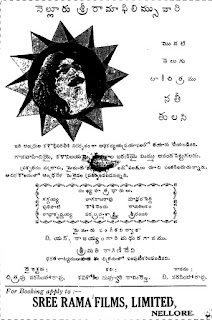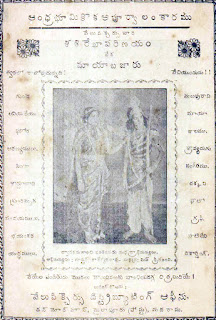Mohini Bhasmasura (1938)

Synopsis: Mohini-Bhasmasura is a beautiful story that tells how Mohini (Pushpavalli) uses her charm to save Lord Shiva from Bhasmasura, a terrible demon. Mohini is a female incarnation of the great preserver-god Vishnu. Vishnu's role in the cosmos is as the preserver of form and of balance. To meet his goals he frequently takes on fleshly form, often (but not always) human. While incarnate he retains his divine powers, but cannot be recognized by mortal eyes. Mohini is special, though, in that she is a male god in female flesh. Cast: Pushpavalli (Mohini), Dasari Kotiratnam (Lakshmi), A.V. Subba Rao (Bhasmasura), Puvvula Naga Rajakumari (Parvathi), Tungala Chalapathi Rao (Narada), D. Rama Murthy (Lord Siva), R. Venkata Ramaiah (Mareecha), M. Ramachandra Murthy, MB Koteswara Rao, D. Subhadra, T. Annapurna Lyrics and Verses: D. Venkatavadhani Music: AT Ramanujulu Cinematography: GD Bhadsavle Audiography: PL Kapoor Editing: GD Joshi Art: TV Subba Rao Makeup: G. Kotes...







